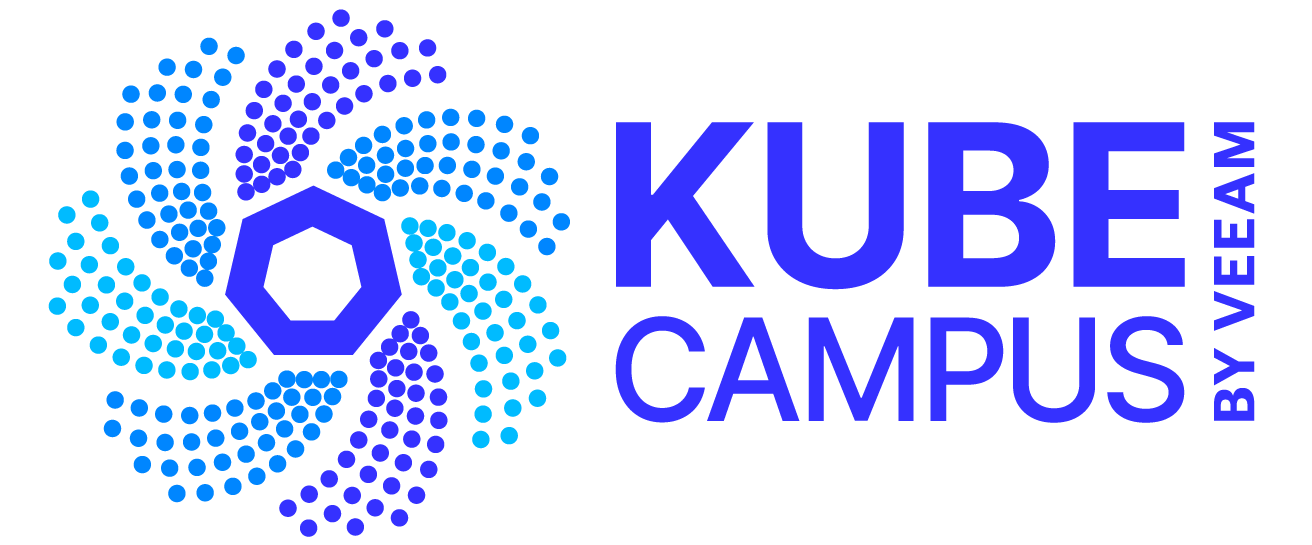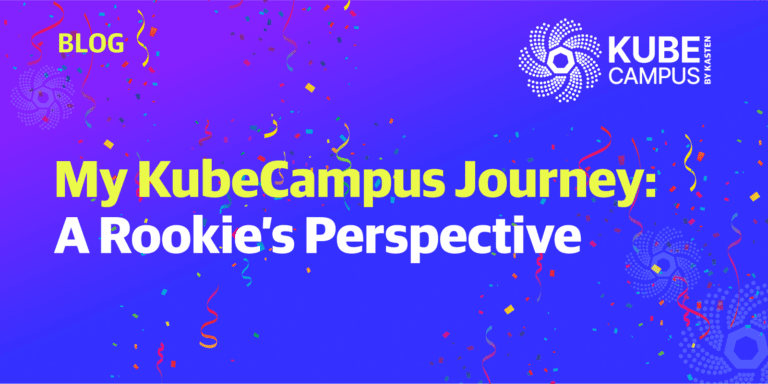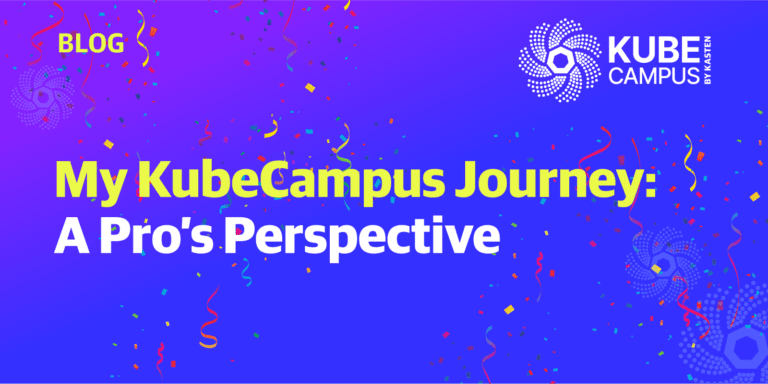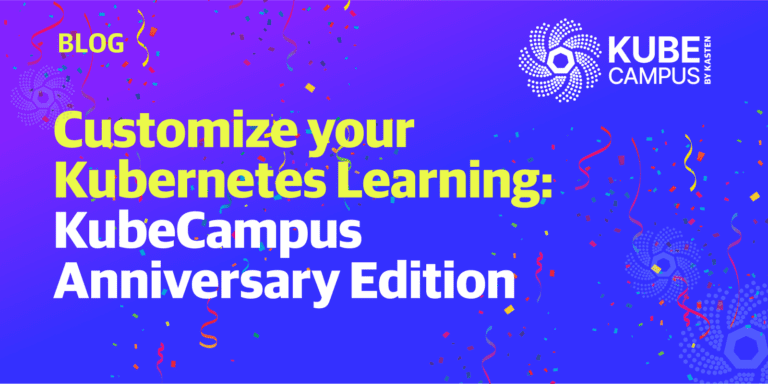Kubernetes is now the de facto platform for orchestrating containers. But, because it’s a relatively new platform, learning how to use it effectively is top of mind for many developers venturing into the world of containerization and cloud native development.
While some developers dabbling in Kubernetes may have a master’s degree or are proficient in certain programming languages such as Python, JavaScript or others, they may only have basic knowledge in Kubernetes. On the other hand, some may be skilled at using Linux or Unix for developing applications that run on virtual machines, but don’t understand how Kuberenetes fits in. Either way, these folks are what we call Kubernetes “Rookies.”
We recently had the opportunity to interview a Kubernetes practitioner who came to KubeCampus, Kasten by Veeam’s free learning resource for Kubernetes users, to understand her journey toward Kubernetes proficiency, and the role KubeCampus played in that journey. Here’s what she had to say.
Q. What skills did you have prior to coming to KubeCampus?
Before I had even heard about containers, I had been working in the cloud sector, primarily on private clouds. I’d been involved for years in virtualization and storage backups. I kept hearing about “containerization” and how it was destined to become the new virtualization. I assumed it was a fad that would pass in time, and I didn’t see much value in it on the DevOps side.
Q. Why did you decide to learn Kubernetes?
After a while, I noticed there were many more discussions about Kubernetes on sites like Reddit and at the conferences I was attending. I heard about Kubernetes, as well. Some people were speculating that containers would replace VMs, and that containers and Kubernetes would eventually move into the virtualization space. I figured I couldn’t put it off any longer – I needed to learn Kubernetes so I could further my career and make myself more valuable to my organization. I understood it would be essential for my professional growth.
Q. What challenges did you face?
Kubernetes is different and complex, and many skills are needed. My main barrier was time. Learning Kubernetes wasn’t relevant to my job at the time, so spending extra time reading articles and watching training videos outside of work would require motivation. I didn’t really want to spend a lot of money, either; however, I knew it would pay off in the long run.
Q. What were you looking for in terms of Kubernetes learning options?
I wanted to find an option that offered a variety of courses and numerous resources, plus a good sense of community and the ability to get answers from experts. I needed to be able to take courses and consume the content at my own time and pace, and I wanted the opportunity to access real commands and work with real-world scenarios.
Q. How did KubeCampus answer the call?
I was reading an article by Michael Cade, a senior global technologist at Veeam, that talked about KubeCampus, and decided to check it out. I took a self assessment, which consisted of a few quick questions, to understand where I was in my Kubernetes learning journey. From there, the site recommended content like blogs, slides and videos to complete prior to the labs.
KubeCampus also has a community forum, where you can get your questions answered using a dedicated Slack channel. You can also send out an email, if you prefer. That connection to the Kuberenetes learning community is helpful and reassuring!
After completing the prework, I took the recommended labs. I enjoyed the hands-on training immensely. It was the best way for me to learn the platform – to work with an actual cluster and complete challenges to earn badges was motivating and fun. I also found links to eBooks, presentations and articles to supplement what I was learning in the labs.
The site is structured to take you through preliminary labs to learn the basics, then progress to more complex topics. After completing Labs 1, 2 and 3, I received my Helmsman Badge, so I’m now considered a Pro!
Q. What did you like about the courses on KubeCampus?
Aside from the fact that the labs are hands-on and I can complete them at my own pace, I like that they’re succinct – each one can be done in an hour. Every course offers something impactful and the opportunity to develop skills that I can apply immediately in my work. The instructors were extremely responsive and helpful. I can use the digital badges to promote my Kubernetes knowledge, as well. They also have a Wall of Fame where they feature developers who have achieved the Helmsman Badge.
Q. What are your next steps?
I’ve noticed that Kasten by Veeam continues to add new advanced Kubernetes labs, such as “Kubernetes Observability” and “Traffic Management with Istio and DataSafety with Kasten K10.” So I plan to continue to take these new courses as they’re released.
Visit KubeCampus today to start your Kubernetes learning journey!




